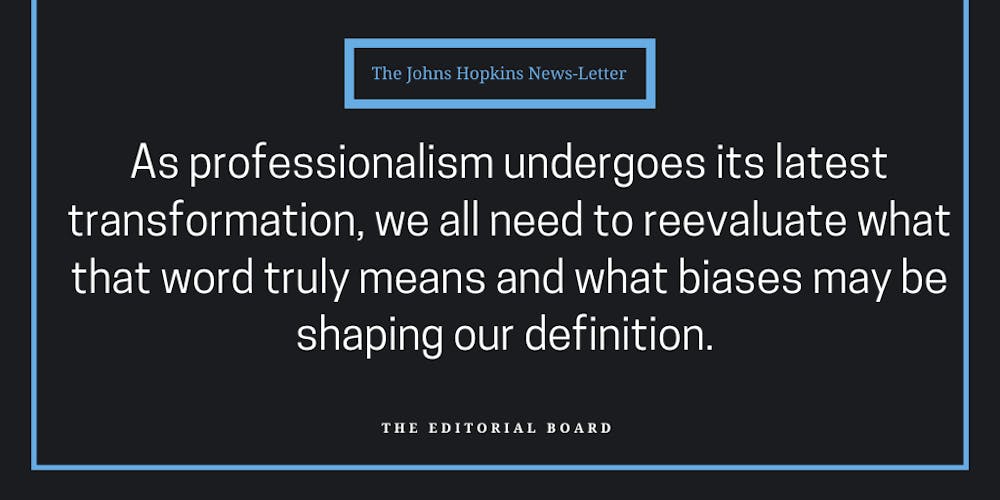Don’t be surprised if you flip on C-SPAN and see Sen. Mitch McConnell wearing Levi’s and a T-shirt on the Senate floor.
Senate Majority Leader Chuck Schumer recently did away with the Senate’s informal dress code, allowing Senators to wear whatever they like, including T-shirts, hoodies, shorts and jeans. The move, a jarring departure from the previously required business attire, has sparked intense controversy. While the U.S. is far past the days of powdered wigs, formal attire has been synonymous with the congressional image since our federal government’s inception.
Though we're not entirely sure how we feel about our senators wearing Crocs while debating the legislation which governs our lives, we do recognize that what we consider “professional” has changed rapidly over the past few years. When the COVID-19 pandemic made working from home a necessity, the American workforce got a taste of a more relaxed dress code that was unthinkable in past decades. Depending on the occupation, you could log on to your 9 a.m. Zoom meeting in pajamas or sweatpants.
Even though many Americans have now returned to the workplace, a 2022 study found that 78% of those currently working from home would like to continue working remotely full-time. The social interactions provided by shared cubicle walls or water cooler conversations are simply not as appealing to workers today. And, as work-from-home outfits have shown us, neither are the cuff links or pumps.
The pandemic’s effect on the workplace is only the latest change in the evolution of office attire. In the 1980s, Silicon Valley led the transformation of work attire to include business casual outfits, a step away from the suits and ties of previous decades. From there, business casual has continued to evolve; the modern-day finance bro’s de facto uniform of a Patagonia vest and a button up is a far cry from the era of formal work outfits.
Although the pandemic significantly affected the workplace, Gen Z is also responsible for the changing conception of professionalism. Research has shown that Gen Z and millennials are feeling left out because of the traditional and often overly formal workplace jargon. Gen Z typically speaks more casually and this has carried over into their professional lives, such as through the use of slang and emojis in office communications. Some Gen Z employees have also adopted quirky work email sign offs in place of more traditional salutations.
Not everyone is embracing the move to a more casual workplace. Politicians and the public have criticized the new Senate dress code for arguably removing the formality and hallowed importance of the Senate as a legislative body. However, some of the fiercest defenders of traditional standards of professionalism need to take a long look in the mirror themselves. A tailored pantsuit can’t conceal immature behavior.
Some of the politicians criticizing the new dress code policy in the Senate have failed to adhere to professional behavior even while looking the part. Rep. Marjorie Taylor Greene called the dress code policy change “disgraceful” on X. Other members of Congress have pointed out Greene’s hypocrisy. During a hearing of the House Oversight Committee, she held up poster-sized pornographic images of Hunter Biden, violating not only the norms of professionalism, but also potentially the law. Greene also behaved unprofessionally by interrupting President Joe Biden during his State of the Union address by screaming “liar.” In both instances, Greene was in accordance with dress code, yet not even close to professional in her decorum.
Attacks waged in the name of “professionalism” are selective at best. At worst, they are racist and exclusionary. Whether it’s hair discrimination — where Black women are viewed as unprofessional when they wear their natural hair — or the higher standards of appearance that women are implicitly forced to achieve, these attacks have been used to unfairly target anyone who isn’t white and male. It was just a little over nine years ago that Barack Obama was criticized for wearing a tan suit, when five previous (white) presidents had done the same.
The conception of professionalism has changed dramatically over the last few decades and will only continue to evolve as Gen Z enters the workforce and remote work gains popularity. Workplaces should reconsider which of their standards matter and which are just arbitrary holdovers from the past. As professionalism undergoes its latest transformation, we all need to reevaluate what that word truly means and what biases may be shaping our definition.





